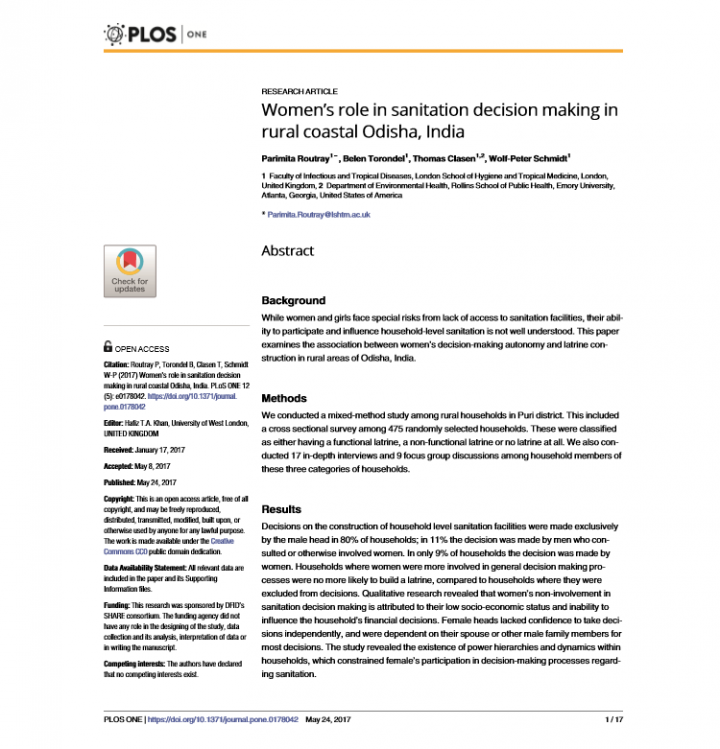Women’s role in sanitation decision making in rural coastal Odisha, India
Routray, P., Torondel, B., Clasen, T., Schmidt, W. (2017)

Published in: 2017
Pages: 17
Publisher:
PLOS ONE
Author:
Routray, P., Torondel, B., Clasen, T., Schmidt, W.
Uploaded by:
SuSanA Admin
Partner profile:
common upload
1980 Views
9 Downloads
Location of library entry
While women and girls face special risks from lack of access to sanitation facilities, their ability to participate and influence household-level sanitation is not well understood. This paper examines the association between women’s decision-making autonomy and latrine construction in rural areas of Odisha, India.
A mixed-method study among rural households was conducted in Puri district. This included a cross sectional survey among 475 randomly selected households. These were classified as either having a functional latrine, a non-functional latrine or no latrine at all. We also conducted 17 in-depth interviews and 9 focus group discussions among household members of these three categories of households.
Though governments and implementers emphasize women’s involvement in sanitation programmes, socio-cultural factors and community and household level dynamics often prevent women from participating in sanitation-related decisions. Measures are needed for strengthening sanitation policies and effective implementation of programmes to address gender power relations and familial relationships that influence latrine adoption and use.
Bibliographic information
Routray, P., Torondel, B., Clasen, T., Schmidt, W. (2017). Women’s role in sanitation decision making in rural coastal Odisha, India. PLOS ONE
Filter tags
East Asia & Pacific English Gender equality Women's rights & representation and empowerment















